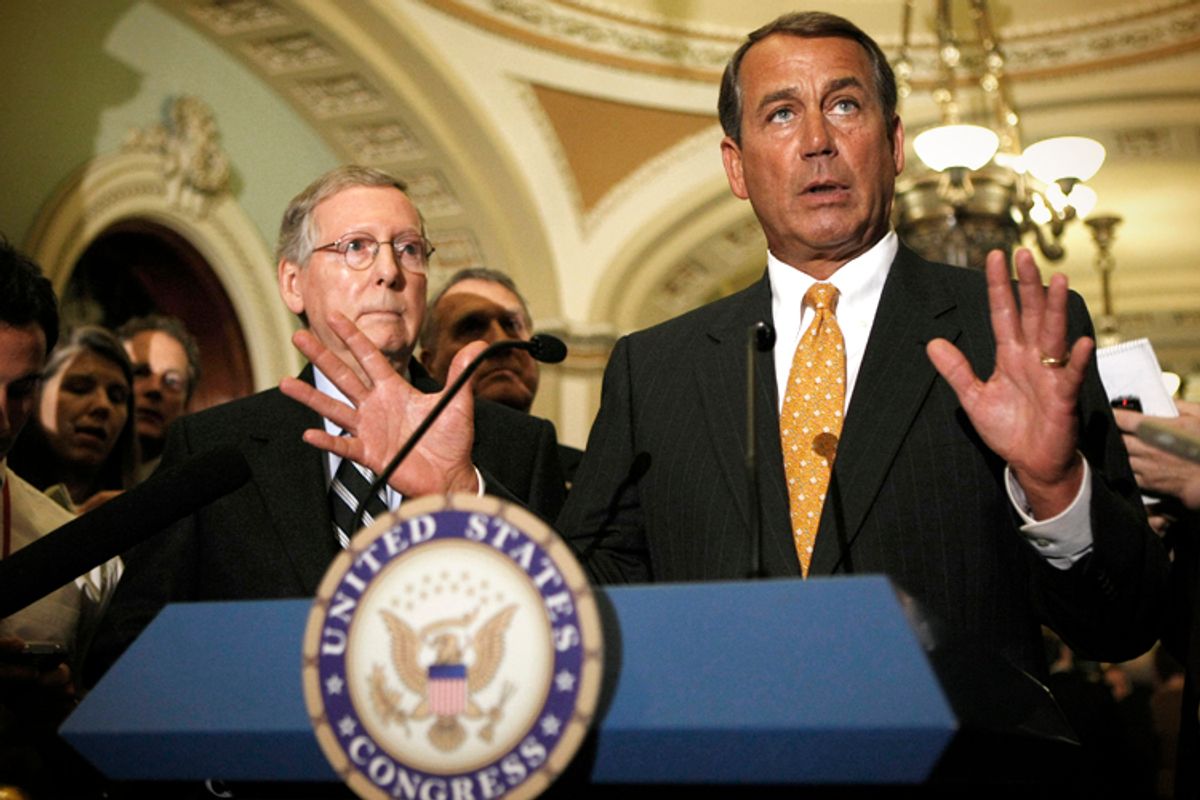The conservative movement's central demand all year has been that Republicans must use key budget deadlines to defund Obamacare. Some conservatives say they would settle reluctantly for a one-year delay of the law. But that's as low as they've been willing to go. And they've stuck to these demands no matter how abundantly Democrats make clear that they will never, ever allow either outcome.
When it came time to execute the strategy legislatively, conservatives got the shutdown they were in effect demanding. But by the time appropriations lapsed at midnight, the demand had dwindled -- from defund, to delay, to finally an ad hoc fusion of two lesser options: that Democrats delay the healthcare law's coverage requirement, and rescind congressional healthcare compensation altogether.
That's the hill Republicans ultimately decided to fight and die on. The dynamic by which they ratcheted down their demands should chasten you as Congress turns to the need to increase the debt limit. Even if they decide to run the whole play over again from the top, they'll walk away from their most outrageous demands just as quickly as Democrats reject them.
And Democrats will reject this one too. Not just because they've ruled out being mugged by Republicans in these fights, but because even if they weren't, the individual mandate isn't something they'll willingly part with, even under less extortive circumstances.
Republicans know this. The individual mandate is perhaps the most unpopular provision in the law -- they wouldn't be helping Democrats avoid voter frustration with the mandate if they didn't know how crucial it was to the law's functioning.
The penalty for lacking coverage is just about the only stick in Obamacare's incentive system. Without it, independent analysts believe millions of fewer people will go uninsured. That's a terrible outcome given Obamacare's coverage goals, but it also would put the entire system at risk. Fewer people -- and likely fewer young people -- would make for a much less stable marketplace. If the mandate lapses for a year, and many fewer than expected enter the system, then premiums will spike next year, potentially creating a vicious cycle that turns ACA into a system of unaffordable insurance for sick old people.
On that score, it's worth pointing out that the mandate delay fight is much more about hurting Democrats politically than it is about earnestly hoping they win the policy fight. The premiums on offer today are effectively based on insurance company estimates of the program's success, and the existence of the mandate figured into those analyses. That their first-year rates came in under expectations is great development for almost everybody who's exchange eligible, but it also underscores the fact that insurers have made an educated bet. Eliminating the mandate for a year would fatally undermine that bet, and probably be extremely costly to those companies whose financial support Republicans have typically enjoyed.
If Republicans were somehow successfully able to sabotage the marketplaces this way, they'd threaten that support.

Shares